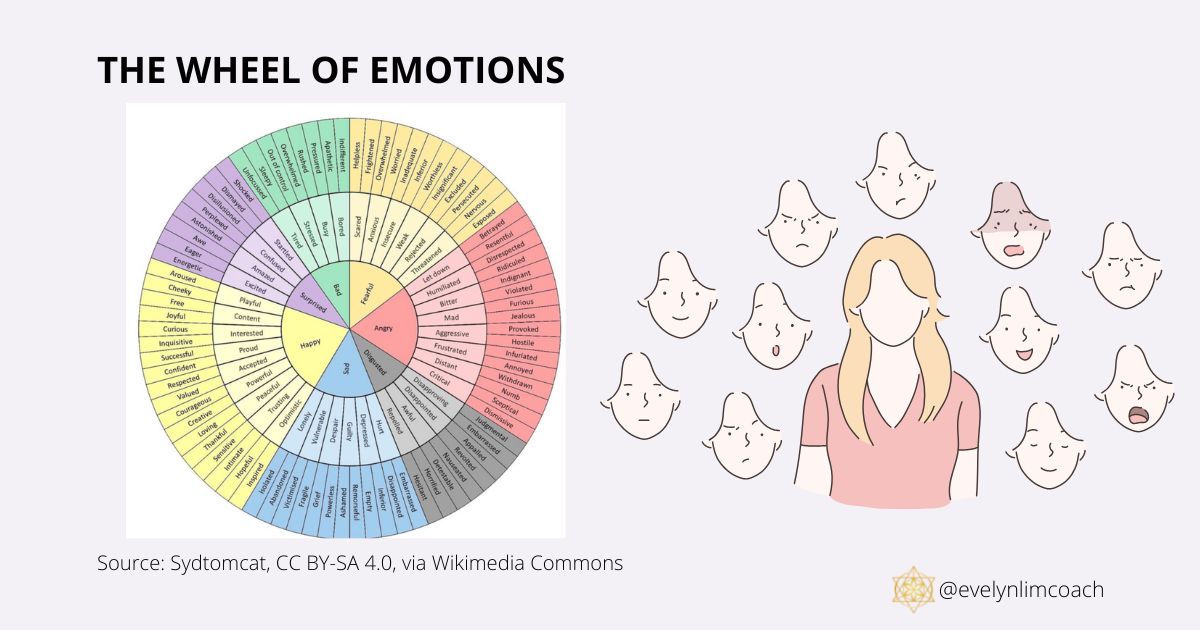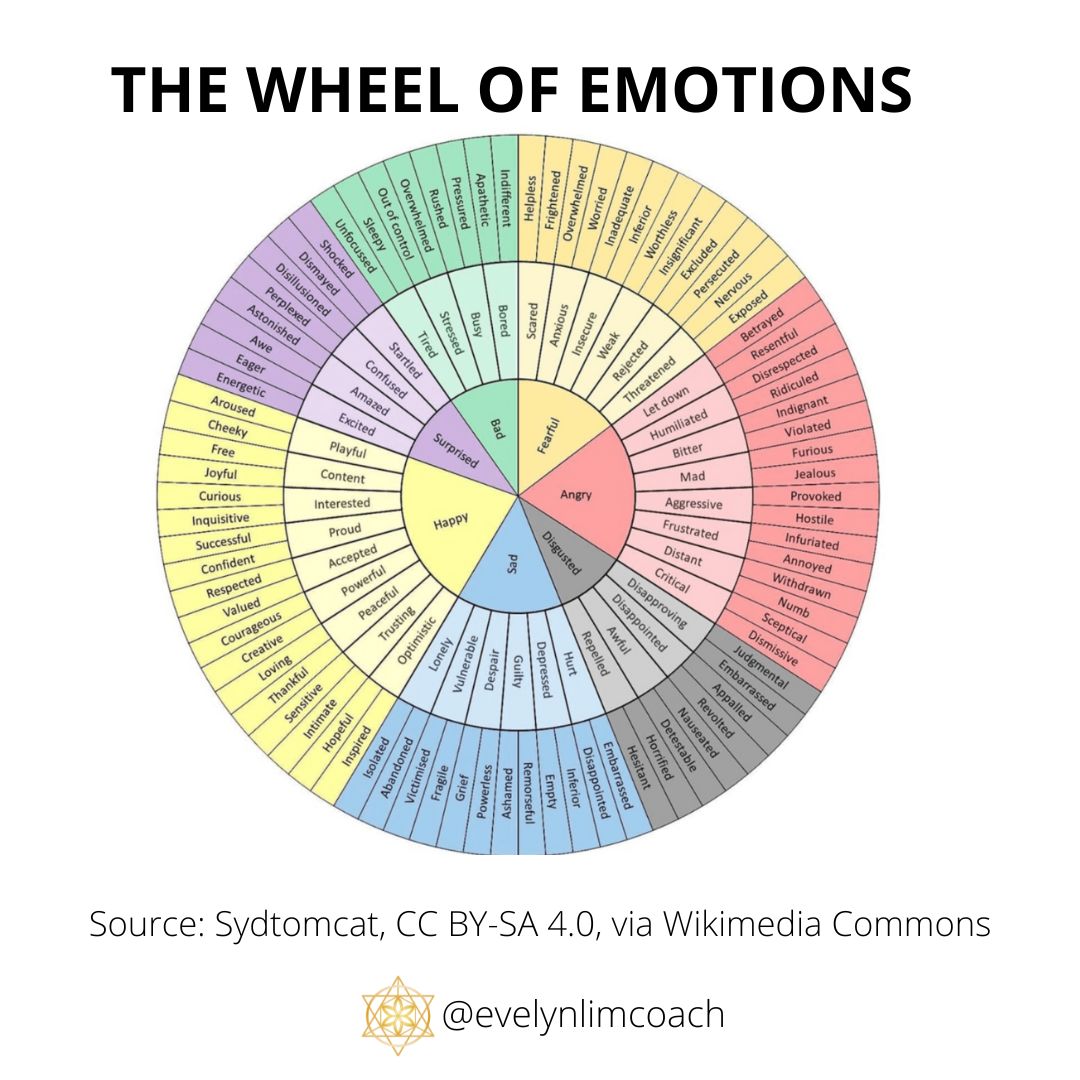Build Emotional Mastery: What is Emotional Labeling and Differentiation

Interested to boost your emotional well-being, so that you can be a lot more resilient in the face of difficulties?
For a start, find out how emotional mastery can be attained through emotional labeling and differentiation of feelings.
For those of us who have repressed our feelings for a long time, emotional labeling and differentiation can be a difficult thing to do. Emotional labeling refers to identifying our emotions and emotional differentiation refers to naming our emotions with specificity and granularity. Both can be difficult to do because we’ve rarely had the chance to process our feelings. Since building emotional mastery or resilience has never been quite emphasised when we were young, it is no wonder that we have had little idea why it matters.
To understand why emotional labelling and differentiation helps, refer to the following scenario: Husband comes back from work, looking drained. Wife notices and asks him about his day. He responds by saying that he is feeling stressed. Wife simply accepts that her husband has had a difficult day, without realising that “stress” can mean a lot of things.
For instance, “stress” can mean that
– he is angry with his boss for giving him tight datelines,
– he is feeling scared that his firm may fire him due to a restructuring exercise, or that he is sad because no one seems to value his work in the office.
All are different feelings that can cause him to be stressed. If husband is more specific about his emotions, his wife can better understand, reflect and respond to how he is actually feeling. An opportunity for improved emotional connection arises.
Indeed, it is worth naming feelings with greater granularity for emotional mastery. Rather than say that “I’m fine”, we are able to lean into a more nuanced spectrum of emotions that more accurately describe what we feel. Bear in mind that “I’m fine” can be anything from “I’m actually feeling melancholic” to “I’m feeling joy”.
Based on my personal experience, I can also attest to this: If we are not accurately determining the intensity of our emotions, we may respond inappropriately. For instance, irritation or frustration is generally of a lower intensity than anger. If we are to perceive them all as the same , we may just find ourselves being really angry people all the time.
As I’ve discovered, emotional mastery helps to promote self-awareness and to foster improved relationships. In fact, research shows that acknowledging how we feel supports our well-being. Avoidance of feelings can create health and relationship problems. In acknowledging how we feel, it’s vital that we have the right emotional vocabulary for making important distinctions in the various feelings. Emotional differentiation helps us to problem solve more accurately.
What to Do Next for Emotional Mastery
1. Step Back to Reflect on Your Feelings
Slow down and give yourself a chance to dive in for naming your feelings. As you reflect on what you feel, don’t just stop at the most obvious emotion. Find out if there is anything else you are feeling or if you are having more than one emotion. Use the Wheel of Emotions below as a guide. There is a difference between feelings and emotions but for the purpose of this article, both words are used interchangeably.

2. Take Note of the Intensity
Many of us have the tendency to lump our negative emotions under “angry” or “stressed”, even though the intensity of our feelings may not be quite as high. Learn to process your inner feelings more accurately. As you name your feelings, ask yourself the scaling question:
From a scale of 1–10 and 10 being of the highest intensity, how strong is this emotion that you are feeling? Do you need to use a different set of words to appropriately reflect the intensity of what you are feeling?
Emotional Mastery is Deeply Transformative
If we are hoping to build resilience, emotional mastery is a must. When we have resilience, we raise our ability to cope with life’s changes. The chance of us going into a downward spiral is reduced.
Towards mastery, emotional labeling is a crucial step for processing our feelings and for healing to take place. We create mindfulness about what is going on internally. Identifying our emotions helps us to create distance from our reaction, to be in charge of what we feel and to reduce physiological distress.
An improved emotional well-being can only create a positive impact in the relationships that we have with the world. Through making differentiations, we become better able to connect with the richness of our feelings. We are in touch with what is means to be human and the experience of being alive.
Are you struggling with managing your emotions?
Would like to build emotional mastery and resilience?
Need to heal your emotional wounds?
Find out more about working together by applying for a discovery call here.
Love and abundance always,
Evelyn Lim
Accredited EFT Practitioner
Emotional Mastery Coach


